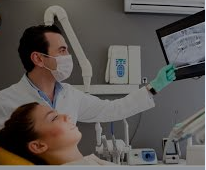Many of our clients are dentists who have used dental practice loans to start, manage, and grow their dental practices. Dental schools are great with teaching you the medical side of running your practice. However, rarely do dental schools teach about the business side relating  to good cash flow, working capital, and business plans.
to good cash flow, working capital, and business plans.
Summary
Bank loans, equipment financing, online lenders for dental practice financing
There are really three types of financing companies you will be dealing with throughout your career as a dentist. Knowing the pros and cons of each will be a big-time saver for you when you are looking for working capital, equipment financing or for practice acquisition.
Traditional banks
Typically local and national banks are the first place a dentist will turn to for a dental practice loan. Contrary to popular belief, banks don’t provide loans based on a good business plan. Banks want dental practices to have collateral, good credit, and existing cash flow just like any other business.
Collateral is any equity that you have in your home, stocks, bonds, or other real estate. Banks look at this collateral to support your loan application should you ever default. Banks will also want to see a 680 personal credit score along with no blemishes on your business or credit.
Dental practice loans from a bank are the hardest to qualify for and take 2-3 months to get in place. If you can wait that long, then the repayment terms and interest rates will be the cheapest out of all the options.
Online lenders
Online lenders, like Financing Solutions, are very common loan options nowadays for business owners including many dental practices. Financing Solutions’ Line of credit product is based on your current cash flow. The approval amount is typically from $10,000 to $100,000.
Financing Solutions doesn’t require collateral or personal guarantees and has lower credit approval requirements than a bank. The loan application process with Financing Solutions is easy to set up and is a lot faster than a traditional bank. Financing Solution’s line of credit will take less than 72 hours to be ready to use for your dental practice.
Bank lines of credit are typically cheaper than online lenders but not always. It depends on how much you plan on using your line. Banks have upfront and yearly fees. That can make the bank line of credit more expensive if you are only using it for emergencies.
Unlike a bank or other online lenders, Financing Solution’s line of credit costs nothing to set up. It also costs nothing until used, making it a great emergency back up plan.
Equipment Financing
When you buy any type of dental equipment, the vendor will usually have financing already lined up for you. Just be prepared that the financing company is going to want a 10-20% down payment. If you don’t have the money to put down, then you can get a line of credit.
The APR for equipment financing might be higher than a bank. Make sure before you move forward you understand all the fees and interested associated with your purchase.
Dental practice Lines of credit and business lines for working capital
A line of credit, commonly known as a business line, is typically used for short term issues. Dental practice clients of Financing Solutions often use their line of credit for working capital. They use it for equipment down payments, purchasing used equipment, making payroll and even getting money out of the practice when the owner needs some personal cash.
A line of credit is basically a preapproved set amount of money that a dental practice business owner can use whenever they like for whatever they need.
Financing Solution’s line of credit is very popular because it is very easy to get in place and costs nothing until used. Financing Solution’s line of credit is often set up due to an emergency or opportunity that has come up. In these situations, one doesn’t have the luxury to wait a few months on the approval process with a bank.
Term loans and small business loans
A term loan is usually taken out to start, update or expand a dental practice in the case for additional practice acquisition. A term loan is typically applied to at a bank and will take months to get in place. Bank of America has an established dental loan program. As long as you have collateral and a good credit score, they are a good consideration.
The difference in a term loan versus a business line of credit is the term loan payment is spread out over a much longer period of time such as 3-5 years allowing for the payment to be lower. The interest rate is typically in the 7-14% range and there typically is a fixed monthly payment.
Unlike a line of credit that can be paid off at any time, there are prepayment penalties with a term loan if you want to pay the bank loan off early. The advantage of a term loan is that it is typically taken out for a large amount of money and the monthly payment is a known amount that you can budget for.
Credit cards and HELOC
Everyone is used to credit cards for their personal life but you would think that if you apply for a credit card for your dental practice that you would not have to have a personal guarantee. That isn’t the case, unfortunately. You will still have to sign for the credit cards personally and each time you run up your credit cards, it greatly affects your credit score for the worse.
The other disadvantage of a credit card versus a line of credit is as it related to the amount you will be approved for. A credit card cash advance approval amount will be much lower than a line of credit.
A HELOC or home equity line of credit is a credit line with a bank against the equity in your house and it can be a fast and inexpensive way to get a cash back up plan in place.
Some of the problems related to a HELOC’s are that a HELOC can not be written off your business/personal tax return. In addition, if you own your home with someone else, they will also be required to sign the final contract for the HELOC.
Refinance
Some dental practices will eventually consolidate all of the loans they have into one big amount and refinance it over a longer period of time. There are a number of financing companies and banks that are willing to look at debt consolidation as long as they have seen that you haven’t missed any payments and that your cash flow continues to be good. Watson Brown is a leader in dental practice refinancing.
Startup dental practice loans and SBA small business loans
Startup dental practice loans
There are a lot of finance companies that talk a good game when it comes to providing startup loans for new dentists but many of them are going to require a good credit score to really give you a dental practice loan on your own. Many dentists out of dental school  either don’t have much of a credit history or have a credit history that is really bad.
either don’t have much of a credit history or have a credit history that is really bad.
In these cases, you are going to have to find a cosigner. Over time you can get the cosigner off the loan or refinance once your cash flow and practice become established.
SBA loans for existing or new practices
Small Business Administration (SBA) Loans are often misunderstood by small business owners. They are often thought to be a loan process that is done with the Small Business Administration for dental practice loans but in reality, the loan process goes through a SBA certified bank like Wells Fargo, Bank of America, and others.
The bank will work with you and the SBA to get the term loan you need for your dental practice. However, the same rules of collateral, a good credit score or a cosigner will apply.
The advantage of an SBA loan is that it typically is cheaper. With an SBA loan, the government is guaranteeing the bank that 75% of your loan will be paid back by the government should you default.
The SBA loan process is long, regardless of if you are getting it for a new or existing dental practice.
Student debt and student loans
Student debt and student loans will have a big impact when applying for almost any type of financing for your dental practice.
Once you fill out a loan application, the first step will be a personal credit check. Inside of that credit check is your credit score and the details of your credit history. If you missed payments or defaulted on a bill, it will show up on your credit report for several years.
Even if you have paid all your bills your credit might be greatly affected by student debt and student loans. There are three credit agencies, Equifax, Experian and TransUnion. These agencies assess the debt you owe and predict how that debt can affect your ability to get additional debt. The credit agencies will add up all your student debt, car loans, mortgages, etc. Then they will calculate what they believe you can handle going forward. That affects your overall credit score which determines if you will be approved for a loan.
If you are young, you also might have no credit because you haven’t started to develop a credit profile.
Just be aware that your personal credit score plays a big role in the loan approval process. Make sure you know your credit score and do your best to clean up any past issues. You can get a free credit report on Credit Karma which is also a good resource to get free monthly updates on your credit.
Of important note, if your credit is poor and you want to hire a credit repair agency be really careful. The credit repair industry has a terrible reputation and will often have expensive terms in their contract. Many terms include the ability to take 1/3 or more of the money you owe to clean up your past due bills. Just make sure you read the entire contract for any credit repair agency you are thinking of working with.
Conclusion
Hopefully, this article gave you a little more insight into the type of financing options available for your dental practice. More than ever, there are a variety of options to choose from based on what you are trying to do, the turnaround time you need, and your credit history.




